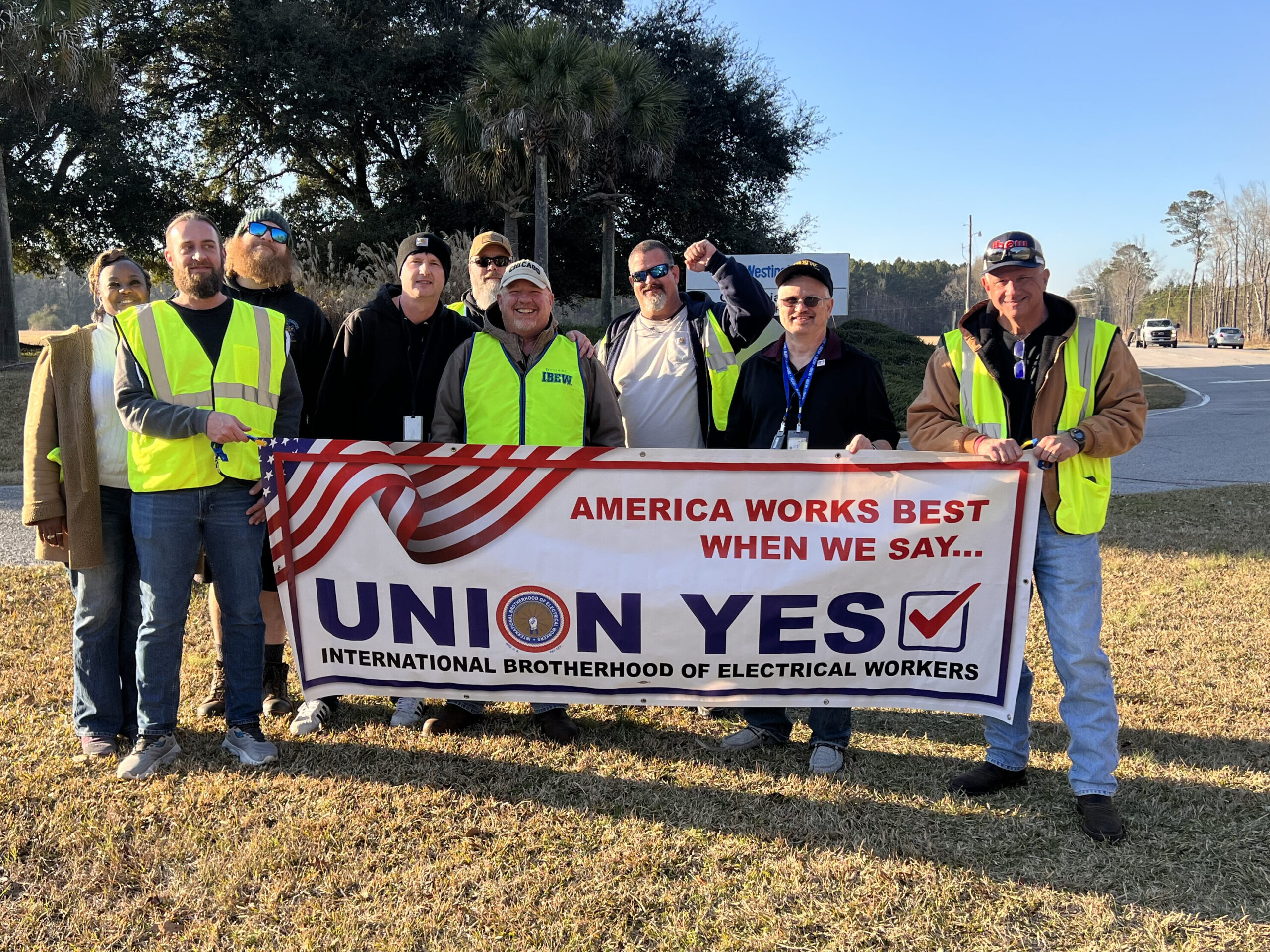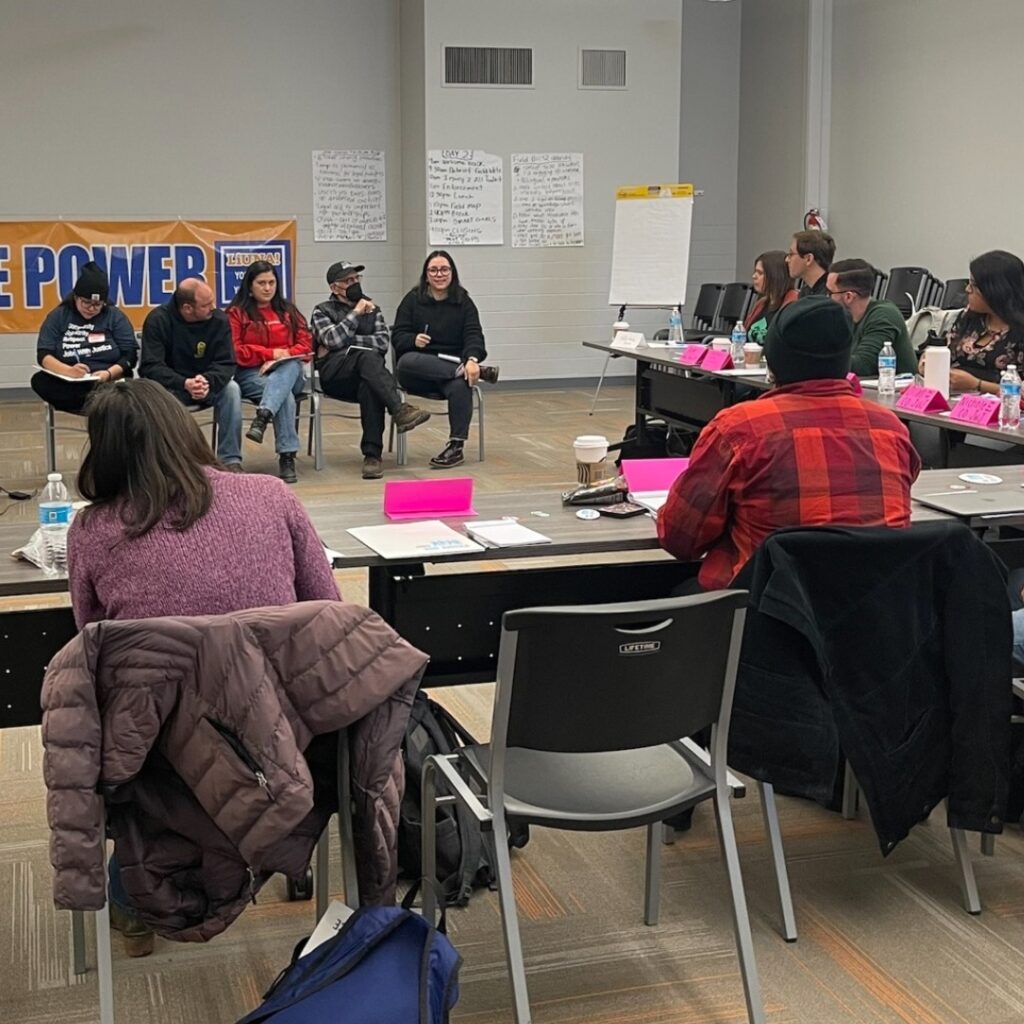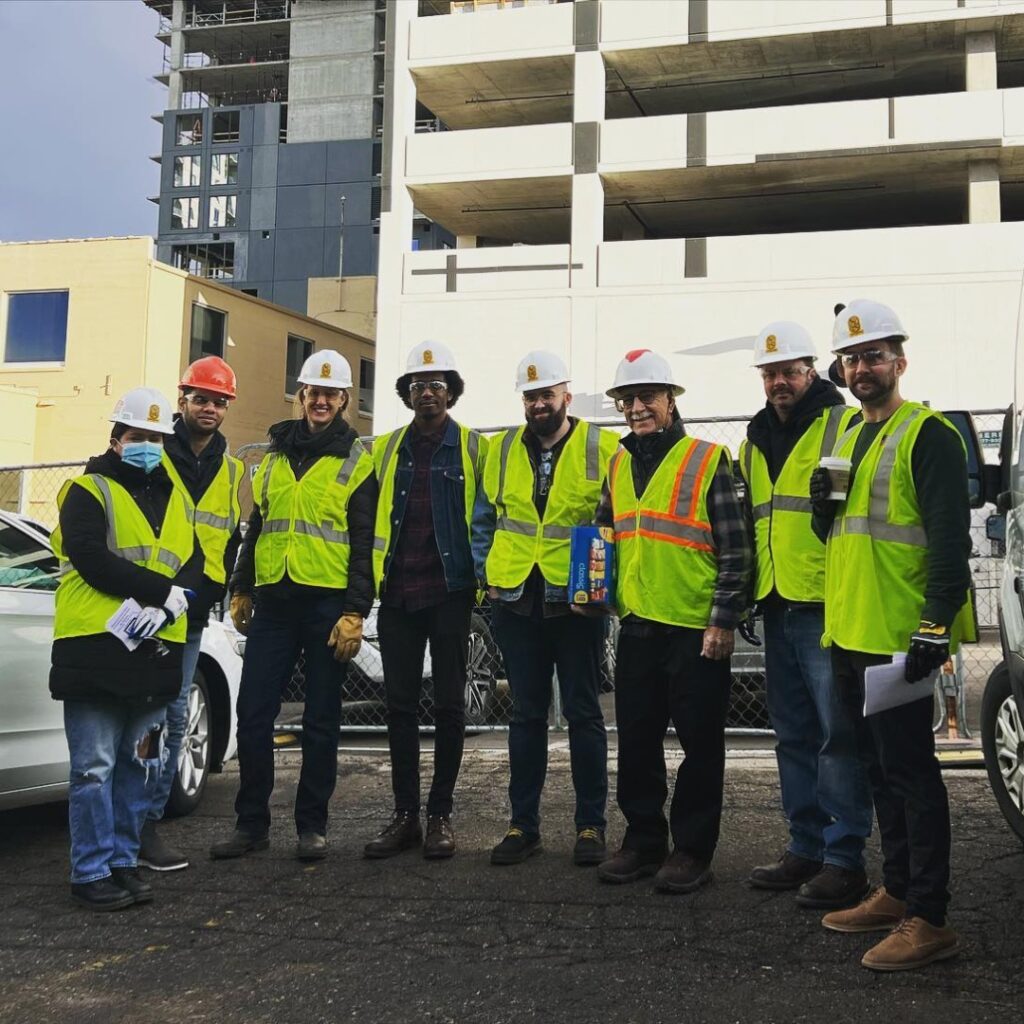The passing of the Bipartisan Infrastructure Law (BIL), Inflation Reduction Act (IRA), and Creating Helpful Incentives to Produce Semiconductors Act (CHIPS) has ignited a massive New Deal-style era investment in the United States that will seed nearly more than a trillion dollars in infrastructure and renewable energy projects in the coming decade by the federal government alone.
At Jobs With Justice, we believe that we must leverage this opportunity to create new standards that workers governing power and create new, permanent standards in these projects and especially in the emerging electric vehicle manufacturing industry.
Throughout our network we are resourcing and launching campaigns to support intersecting campaigns in the construction (infrastructure) and renewable energies sectors, namely the emerging electric vehicle (EV) industry and the opportunity surrounding the construction and operation of major forthcoming EV production facilities throughout the South.

In Tennessee, for example, the state is transforming with large new electric vehicle manufacturing facilities in Chattanooga and Memphis, non-union global transplant auto companies relocating in the last decade, massive housing and transit investment Knoxville, as well as millions from the BIL being invested in projects that improve energy efficiency and infrastructure needs of a highly neglected Eastern Tennessee region. In a state like Tennessee, Jobs With Justice built on our already-strong coalition of union partners and local organizations to ensure that these new projects benefit workers and communities as a whole. We resourced an organizer locally as an initial example of how building worker power in the community, and perhaps shifting the local political landscape can become a flashpoint for other similar regions around the country.

Following an important convening in early 2023, a number of other local JWJ Coalitions began launching Industrial Democracy campaigns focusing on a variety of strategies including: promoting access to construction careers through apprenticeship programs, developing co-enforcement strategies, utilizing procurement power to facilitate industry-wide bargaining, and by building a base and coalition to ripen the conditions for organizing in all of the sectors impacted by the federal funds.
After the United Auto Workers historic contract wins at the Big Three (Ford, Stellantis, and General Motors), JWJ organized a letter signed by dozens of Black elected officials requesting that the Biden administration take real steps to ensure the standards UAW won become a reality for new EV jobs. The letter included a request to convene a meeting between workers, industry, unions, and elected Black officials.
Jobs With Justice also continued working with Jobs to Move America to develop industry-setting procurement language which local governments can insert into procurement processes for electric buses and other tax-subsidized, electric fleets.

Ultimately, if we set new industrial and infrastructure policy without centering the experience of workers, there could be catastrophic consequences long-term, further centralizing profits in the hands of a small set of individuals who will go on to fund projects to adapt to climate change primarily in their communities, leaving everyone else vulnerable at work and at home. However, with strategic interventions from workers, the massive influx of federal spending could turn the tide on runaway inequality and leverage the shift to expand industrial democracy.
